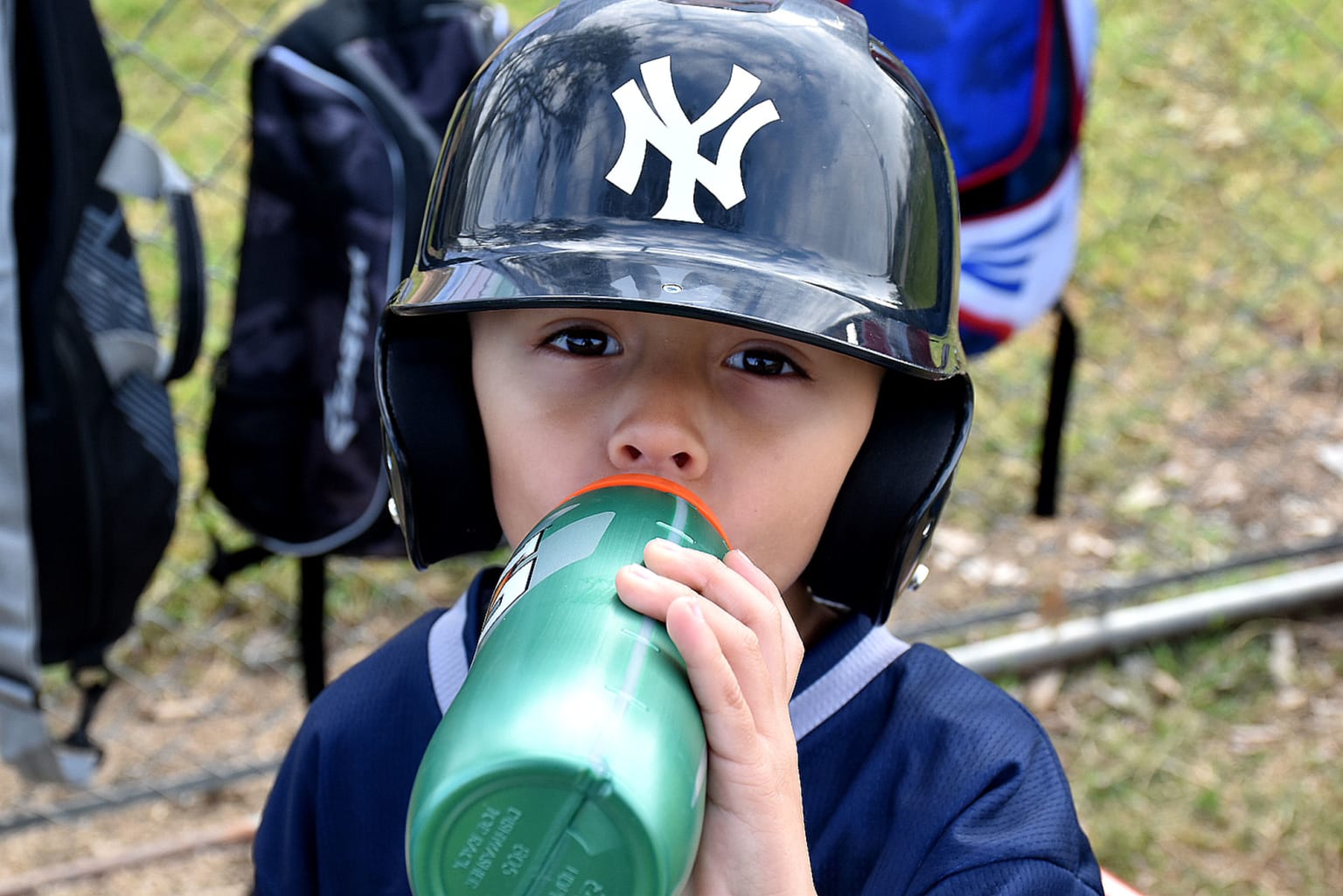
The health and welfare of our children is always a top priority. When kids play sports, it’s always important to remember that simple body maintenance is the best way to protect against injury and illness.
During Little League® seasons its essential that your Little Leaguer® stays properly hydrated. Little League talked to Lindsay Baker, PhD, Principal Scientist at Gatorade Sports Science Institute, about how parents can make sure their youth athletes stay safe during the hot summer months.
Why is proper hydration important for baseball and softball players?
Dr. Lindsay Baker: As little as two (2) percent dehydration (2 percent drop in body weight through fluid loss) is associated with impaired performance during stop-and-go sports, such as baseball and softball. Performance measures such as skill, agility, and running have been found to be adversely affected and athletes also have increased feelings of fatigue as they accrue a body water deficit. The negative effects of dehydration on performance are most apparent when athletes are exercising in hot and humid conditions.
What are ways that parents can help their Little Leaguer® stay healthy through proper hydration on the field?
LB: The first step is to make sure the players begin practice and competition in a well-hydrated state. We and other researchers have found that many athletes, including youth athletes, show up to practices and games already dehydrated. One simple way to gauge hydration status throughout the day is to monitor urine color. Light yellow (like lemonade) is indicative of proper hydration. Dark yellow or brown (like apple juice) is indicative of dehydration. Clear urine indicates over-hydration so the athlete can cut back on fluid intake.
What are the best ways that baseball and softball players can stay hydrated?
LB: The best way to determine whether athletes are drinking enough to stay well-hydrated is to weigh the athlete before and after practices and games. Acute body weight changes during a bout of exercise are mostly due to water loss from sweating. Therefore, if a player weighs 100 pounds before exercise and 98 pounds after exercise that means they’ve lost about two (2) pounds or two (2) percent of the body weight through dehydration. Players should drink enough fluid during practices and games to prevent greater than two (2) percent body weight deficits.
It’s important that parents educate their children on the ways to monitor dehydration, too. If they know what to watch for, they can keep themselves safe.
What are some best practices to stay hydrated for before, during and after games and practices?
LB: This hydration strategy table has specific recommendations for hydrating before, during, and after games and practices. Post-exercise rehydration is especially important when there is a short timeframe between the end of one game and the start of the next (e.g., double headers or tournament play).
Especially in hot weather, what are some ways that coaches and parents can ensure their players stay healthy and hydrated?
LB: During hot weather, proper hydration is especially important because it helps cool the body. It is important to provide the players with cool, palatable fluids to encourage drinking. Research has shown that athletes, including youth athletes, drink more of a flavored beverage than water. Sucking on crushed ice in the dugout during breaks can also be an effective way to help cool the body.